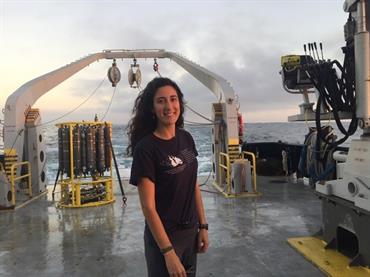
Ana María Cabello, ICES, Spanish Institute of Oceanography, Spain
A native of Sevilla, southern Spain, I am a marine microbial ecologist interested in the diversity, distribution, and activity of phytoplankton. I started a Biology degree at the Universidad de Sevilla but due to my increasing interest on biological oceanography I later transferred to the Universidad de Santiago de Compostela where I could specialize in Marine Biology. After that, my scientific career got started and I have been moving quite a lot! I obtained a fellowship to do my PhD at the Institute of Marine Sciences (ICM-CSIC, Barcelona).
During my PhD, I studied the distribution patterns and community structure of picoplankton algae, also called photosynthetic picoeukaryotes, which together with cyanobacteria, are major contributors to primary production in the oceans. Once a postdoc, I expanded my field of study to the bacterioplankton. I participated in a project at the AZTI (Basque Country) to study the transcriptomic responses of bacterial cultures to temperature acclimation. Then, I joined the Zehr Lab at the University of California to work on different aspects of the ecology, diversity and activity of a unique symbiotic system established between unicellular N2-fixing cyanobacteria and picoplankton algae.
I am now part of the Plankton Research Group at the Centro Oceanográfico de Málaga (Spanish Institute of Oceanography). My position includes managing the lab and research tasks related to the study of the genetic diversity and activity of marine phytoplankton and bacterioplankton communities.
My work at these different institutions has allowed me to collaborate with outstanding international researchers in the field, participate in several multidisciplinary research expeditions including the Spanish circumnavigation expedition MALASPINA. I have not participated in previous ICES conferences, but I am very fortunate to be part of the Scientific Steering Committee as a representative of the Spanish Institute of Oceanography for the upcoming conference. It is a great opportunity for my career and I hope to contribute to the team and take the most out of this adventure.
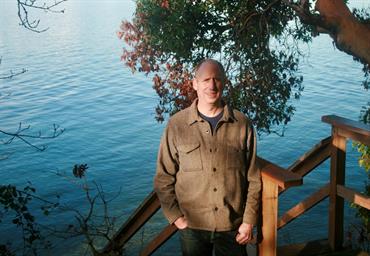
Paul Covert, Fisheries and Oceans Canada, Canada
My research background is broad, with an emphasis on ecosystem scale estuarine biogeochemical processes during my MSc research and on molecular scale structure of mineral—water interfaces (within a marine context) during my PhD. Between my MSc and PhD, I worked as a research technician for several years, developing analytical tools for measurement of seawater nutrient and carbonate concentrations. Following a post-doc in Europe, I joined Fisheries and Oceans Canada, where I currently lead a group whose goal is to further our understanding and characterization of marine ecosystems surrounding major shipping ports in British Columbia, Canada. In this current position, my horizons are once again broadened, and I work closely with scientists and managers from local First Nations, academia, and government organizations.
Two topics of personal interest that I would like to encourage during the upcoming ICES/PICES Early Career Scientist Conference are: (1) development of methods and analytical tools to better integrate oceanographic, biogeochemical, and ecological research; and (2) collaborative design and undertaking of research projects with indigenous colleagues. Scientific disciplines have historically operated in isolation and these two topics encourage a breadth of perspective that can lead to richer, more complete research.
I'm looking forward to working with the other members of the steering committee to assemble this conference and to stimulating discussion and future collaboration with conference participants.
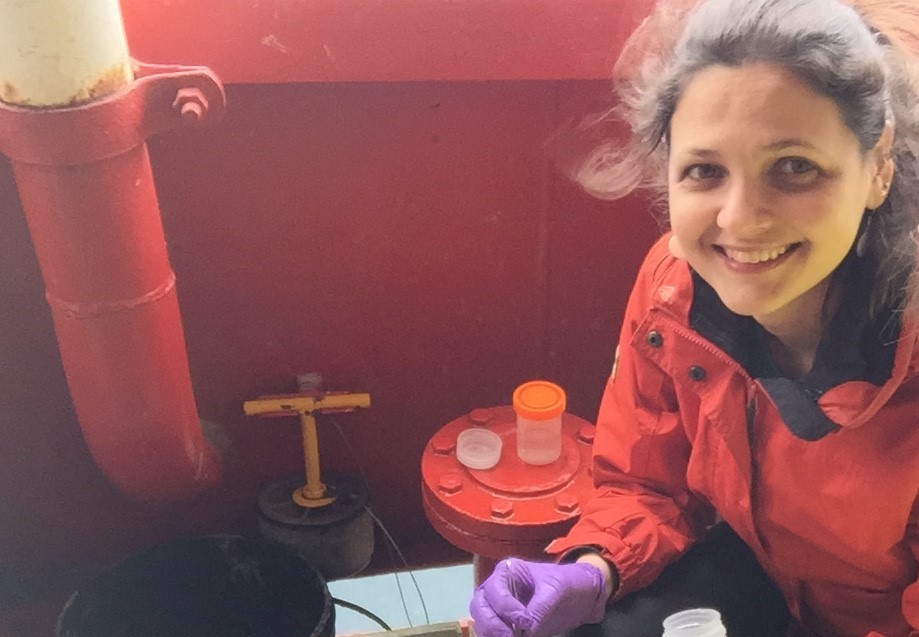
Bárbara de Moura Neves, Fisheries and Oceans Canada, Canada
I work as a research scientist at the Department of Fisheries and Oceans Canada (DFO), in St. John's Newfoundland. I work on benthic ecology, with a focus on indicators of vulnerable marine ecosystems (VME), including cold-water corals and sponges. My interests involve the biology, ecology, and diversity of VME indicators and other marine benthic invertebrates. I am particularly interested in their ecosystem role and vulnerability to anthropogenic activities.
During my MSc, I studied coral taxonomy in Brazil, which is still one of my topics of interest. During my PhD, I studied growth and longevity in cold-water corals, but got involved in projects on Arctic benthic diversity, through participation in the planning and execution of several scientific expeditions with a focus on seafloor imagery data collection (e.g. Remotely Operated Vehicles, ROVs).
In my current position, I work on different topics related to benthic ecology, ranging from infauna to megafauna, from shallow to deep water environments, and from the Arctic to the southern hemisphere. I highly appreciate collaborations and have been lucky to work with wonderful scientists from Canada and elsewhere around the world. I am one of the steering committee members from DFO, and I have been nominated by my DFO Region (Newfoundland). As an early-career scientist, I am excited to be part of the steering committee and to learn and contribute to a great conference.
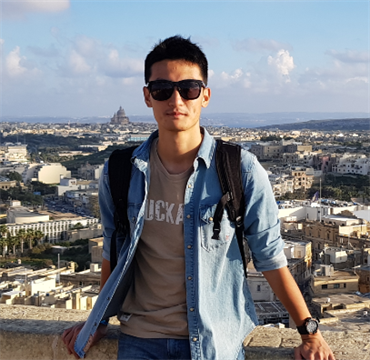
Heejoong Kang, PICES, National Institute of Fisheries Science, South Korea
I have studied fisheries stock assessment and I finished my PhD in Pukyong University in Korea. During my PhD, I studied an ecosystem-based fisheries assessment (EBFA) which evaluated the effects of fisheries activities on ecosystem in time and space scales using Ecopath with Ecosim (EwE) and risk-scoring method.
I have been working as a fisheries scientist at the National Institute of Fisheries Science in South Korea. My interests include integrating data for stock assessment, assessing and forecasting fisheries resources, evaluating management strategies, and proposing scientific and reasonable management reference points.
I am very happy to be on the Scientific Steering Committee and help organize the Early Career Scientist Conference and believe that it will be a good experience in my early career. I hope that this conference will provide a great opportunity for young scientists to present their research internationally, and improve their work from discussion and feedback.
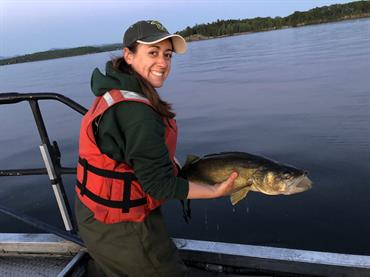
Hannah Lachance, PICES, National Oceanic and Atmospheric Administration, United States
I am an International Fisheries Science Specialist supporting the National Oceanic and Atmospheric Administration in the United States. I obtained my MS. in Natural Resources with a concentration in Aquatic Ecology and Watershed Science from the University of Vermont during which time my research focused on climate change impacts, life history characterization, and genomic identification of a native group of prey fish, ciscoes, in the Great Lakes.
My master's work earned me a position working first with Vermont Fish and Wildlife, contributing to sport fish survey and management efforts and then with the United States Geological Survey Lake Ontario Biological Station to continue field research around conserving and restoring cisco in Lake Ontario. Prior to “diving" into fisheries, I worked in various molecular laboratories (e.g. genetics/genomics, microbiology, biochemistry), with a range of domestic and wildlife species (e.g. moose, impala, beef/dairy cattle, lambs), and with a wide range of domestic and international state and federal agencies, institutes, NGOs and stakeholders.
I am passionate about native species conservation and restoration, ecosystem based management, applied science, outreach, diverse stakeholder inclusion, and science communication. I look forward to the experience and connections that my role on the Scientific Steering Committee will bring.
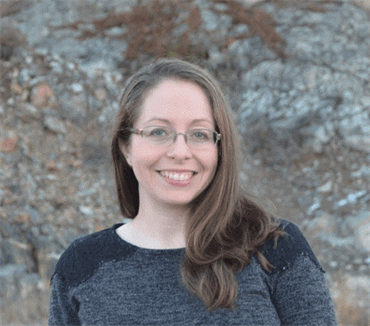
Julie Marentette, Fisheries and Oceans Canada, Canada
I am a Senior Science Advisor with the Fish Population Science branch in the national headquarters of Fisheries and Oceans Canada, which led to my involvement with the Scientific Steering Committee for the ICES PICES Early Career Scientist Conference.
My work focuses on Canadian major fish stocks, and in providing scientific support for national fisheries policy and management decision-making under the precautionary approach and Canada's recently revised Fisheries Act. In general, I am interested in risk assessment and decision-making in multiple resource management contexts, and the importance of science communication in engaging with decision-makers.
I hope to contribute to themes relating to transparent and accessible science, and science in support of sustainable development policy. These are exciting and dynamic topics that will provide opportunities for early-career scientists in many ocean or fisheries science-related fields to engage with each other across disciplines.
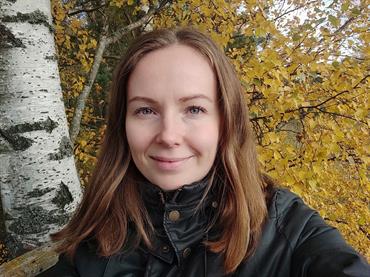
Rasa Morkūnė, ICES, Marine Research Institute of Klaipeda University, Lithuania
I am an aquatic ecologist at the Marine Research Institute of Klaipeda University in Lithuania. For my PhD thesis, I applied stable isotope analysis to study marine bird diet and worked on food web modeling for the Baltic coast. As a postdoc, I go deeper to the diet choice of top predators and its relations to coastal food web properties. My interests also cover the impats of birds on aquaculture and fishery as well as evaluation of ecosystem services of the coastal regions. I am a member of ICES Working Group on Integrated Assessments of the Baltic Sea (WGIAB).
I love participating at scientific events and I had fun organizing a few larger international events at my home university. I am really happy and proud to be at steering committee of this upcoming fourth Early Career Scientist Conference in 2022. I believe this event will not only be a great pleasure for participants to meet each other but also an effective way for everyone to broaden professional networks and understand the meaning and power of their research results. As we all are challenged to fulfill global targets and change the way we had lived by now in the context of climate change, various kinds of pollution and threats for biodiversity, therefore, our research must help to show the solutions and directions for further needed actions.
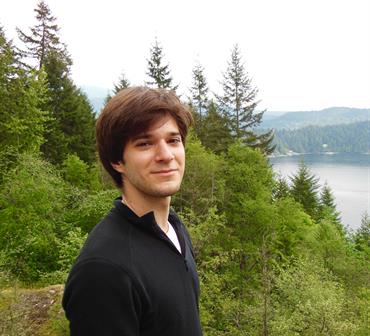
Raphael Roman, PICES, Iwate University and the National Institute for Environmental Studies, Japan
Hailing from Switzerland, I am currently a research associate at Iwate University and visiting fellow at the National Institute for Environmental Studies (NIES) in northeastern Japan. Before that I spent 6 years on the other side of the Pacific in Canada, where I earned a BSc in Economics from the University of Montreal and a Master of Public Policy and Global Affairs from the University of British Columbia in Vancouver, B.C.
My current research takes a systemic approach to marine resources conservation and multi-species fisheries management across Japan. I also investigate the social-ecological impacts of the 2011 Great East Japan Earthquake and tsunami, with a particular emphasis on disaster risk management and coastal community resilience and recovery. My interests are broad and range from new economic thinking and social-environmental well-being to sustainable ocean governance and biodiversity conservation. I am passionate about interdisciplinary research approaches and about engagement at the science-policy interface, where I believe early career ocean professionals (ECOPs) have a key role to play.
As such, and in the context of the UN Decade of Ocean Science for Sustainable Development (2021-2030), I hope to increase representation of the social sciences within the themes of the conference, while encouraging more inter- and transdisciplinary sessions and workshops that can offer intellectually stimulating exchanges across disciplines, sectors and geographies.
I am honoured to represent PICES at the fourth Early Career Scientist Conference in 2022 and I very much look forward to collaborating and brainstorming ideas with such a diverse and dedicated steering committee. The organization of the conference is in good hands and I am really excited to be part of that process.
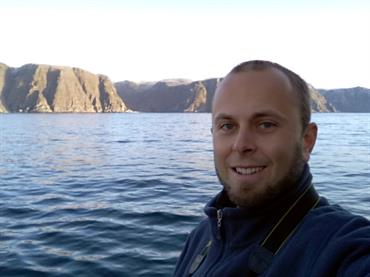
Szymon Smoliński, ICES, National Marine Fisheries Research Institute, Poland
My main scientific interest is fish ecology, and recently I have focussed on marine and estuarine species. But with a background in hydrobiology, I am also familiar with inland ecosystems and freshwater fish.
I am interested in the biological responses at different levels, starting from the individuals, through populations, to the whole communities. In my research, I apply otoliths and other calcified biological structures as natural tags indicating e.g. fish origin, stock assignment, physiological status, or growth history. I try to use this information to find the relationships between fish and environmental conditions.
Another branch of my research is focused on spatial modeling of fish distribution and habitat suitability. In my studies, I pay attention to modern statistical techniques, including machine learning algorithms, and honestly, I am an R-language fanatic!
During my career, I've been involved in ICES working groups related to coordination of fish monitoring, fish biological parameters, or stock assessment. Under the umbrella of the Helsinki Commission (HELCOM), I was involved in the development of fish-based indicators of environmental status. I also got some practice at sea as a cruise leader or scientific crew member during surveys in the Northeast Atlantic.
As an ICES representative on the Scientific Steering Committee, I am honoured to co-organize a congress of people from different disciplines but with a common goal – advancing ocean science for sustainable development.

